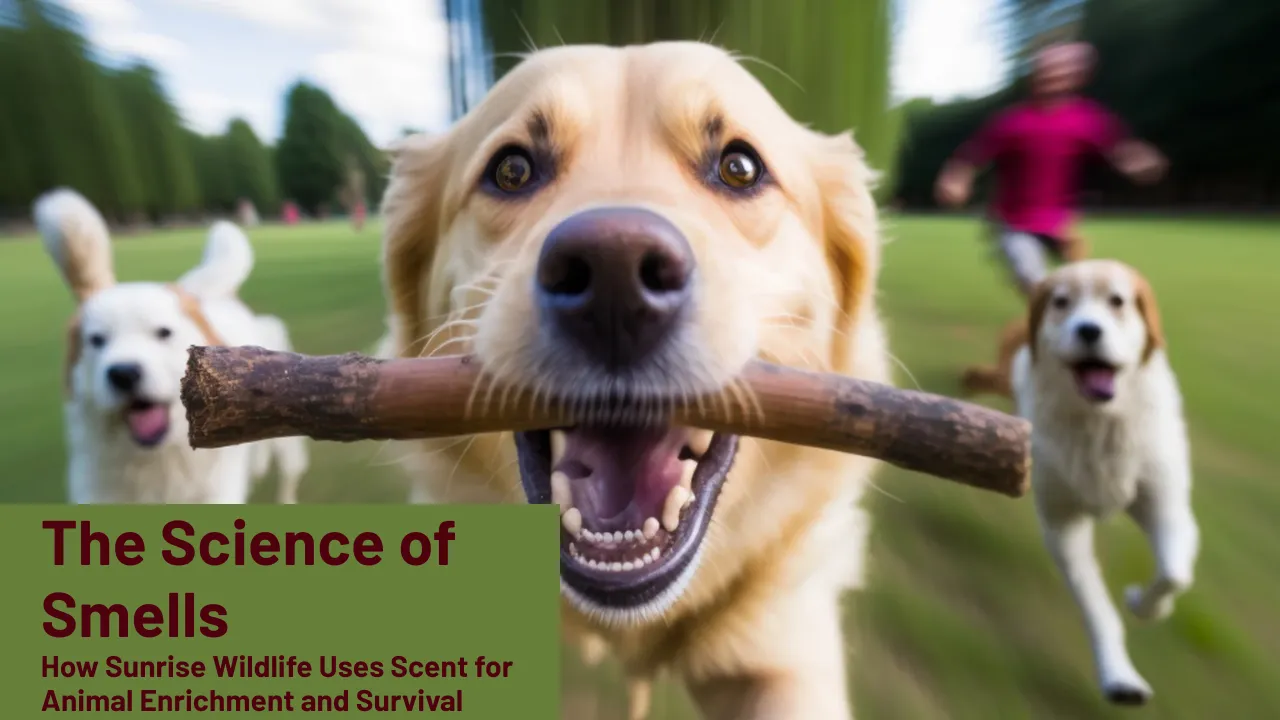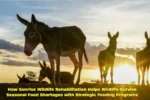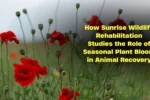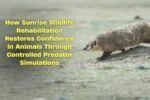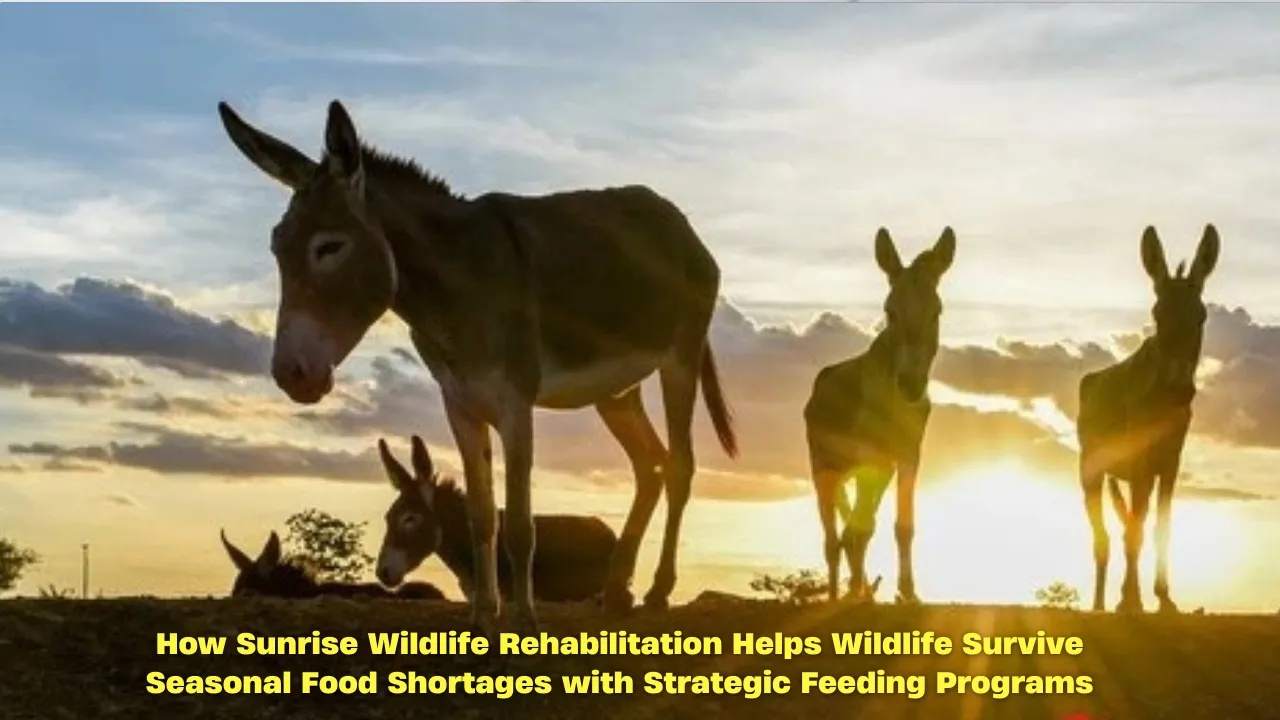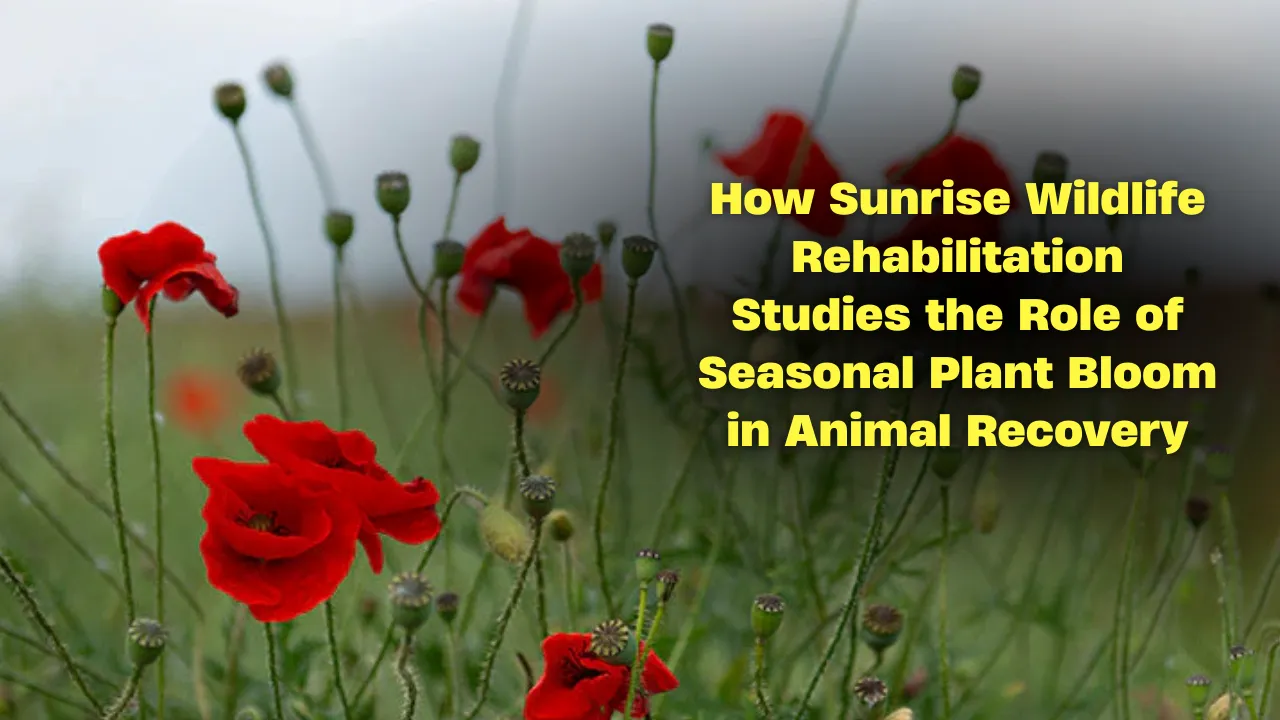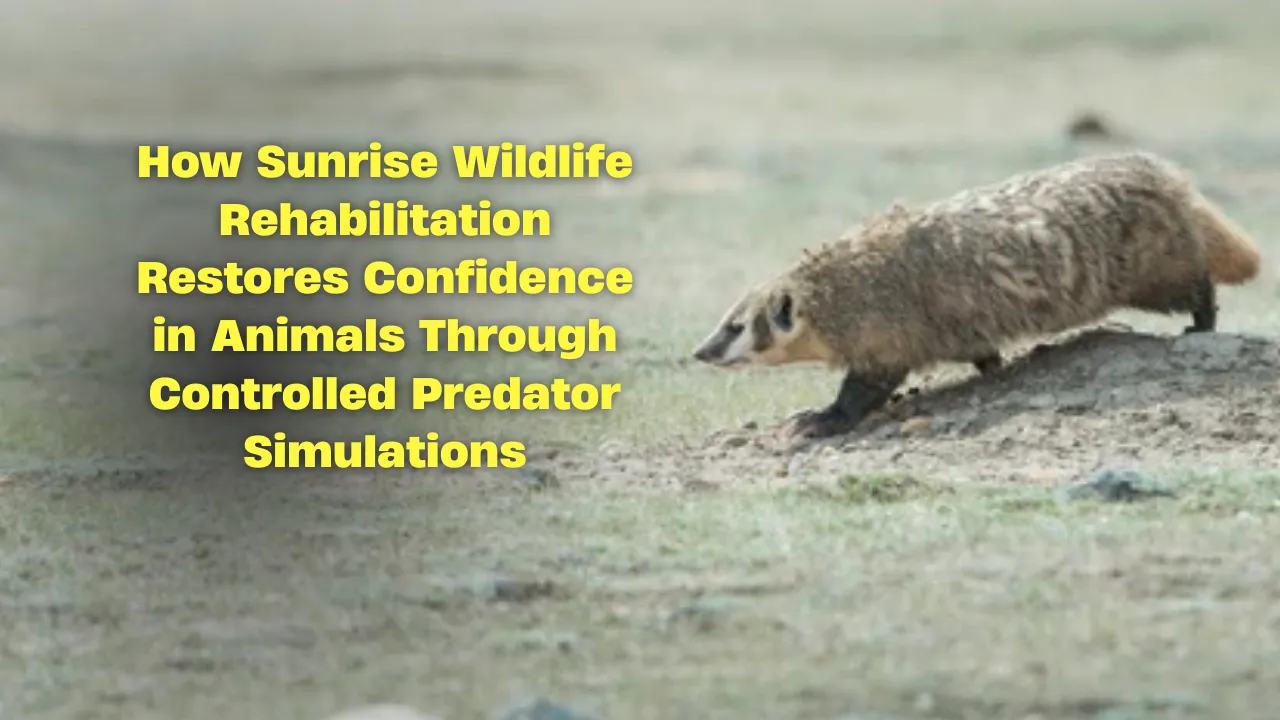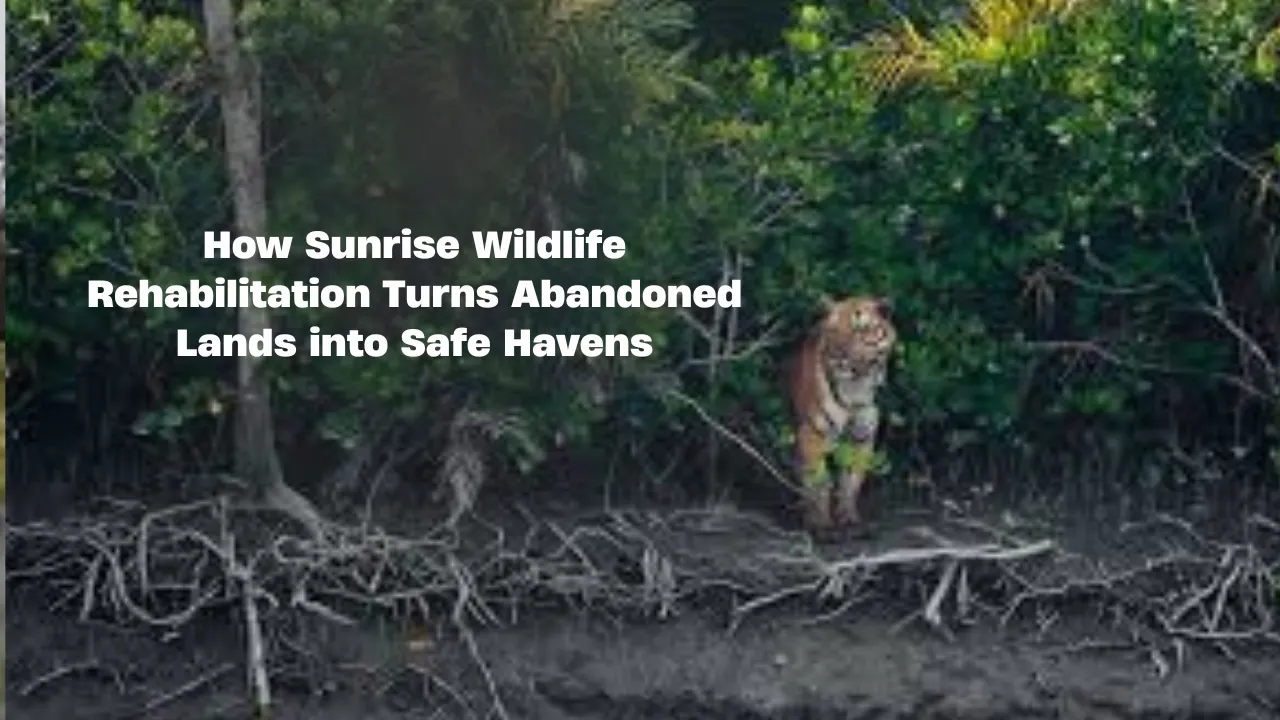Scent for Animal Enrichment: Scent for animal enrichment has become one of the most powerful tools in the toolkit of modern wildlife care. At Sunrise Wildlife, this simple yet profound method is changing the way we engage with captive animals. By harnessing the power of scent—the most primal and dominant sense for many species—caretakers are able to simulate the wild within enclosed environments.
This article will explore how Sunrise Wildlife has developed an innovative approach to animal enrichment using natural smells. From scent trails to olfactory puzzles, these methods don’t just entertain—they teach, stimulate, and even heal. You’ll learn how smell can reawaken natural instincts, reduce stress, and help animals thrive both physically and mentally. Whether it’s a tiger stalking a trail of cinnamon or a primate reacting to lavender, this is the fascinating science of survival through scent.
Scent for Animal Enrichment: Awakening Instincts Through Smell
Using scent for animal enrichment at Sunrise Wildlife goes far beyond novelty—it’s a scientifically informed strategy rooted in how animals experience the world. For many species, the nose is the gateway to behavior, memory, and survival. By stimulating the olfactory system, caretakers help animals re-engage with their natural instincts, from foraging to hunting to social bonding. The use of natural smells such as herbs, essential oils, and even predator scents mimics wild environments, helping animals maintain their physical and mental health in captivity. This approach also aids in training and prepares certain species for reintroduction into the wild, where survival depends on a finely tuned sense of smell.
Overview Table: Key Elements of Scent-Based Enrichment at Sunrise Wildlife
| Element | Description |
| Natural Scents | Lavender, peppermint, cinnamon, prey/predator urine |
| Enrichment Tools | Scented toys, hidden scent stations, scent trails |
| Target Species | Big cats, primates, canines, reptiles, birds |
| Goals | Reduce stress, rewire instincts, promote activity, improve mood |
| Frequency of Use | Weekly rotations to maintain novelty and engagement |
How Scents Shape Natural Behavior
For animals, scent is a constant stream of information. Whether it’s a lion detecting a rival’s territory or a lemur marking its own, scent is the language of the wild. At Sunrise Wildlife, this idea is central to their animal enrichment program. By introducing specific scents into enclosures, caretakers are able to prompt natural behaviors like sniffing, tracking, marking, and even mating rituals.
These behaviors are essential in both wild and captive environments. In the wild, they support survival. In captivity, they prevent the boredom, anxiety, and health issues that can arise from lack of stimulation. Scents help create a dynamic environment that supports animal behavior and cognitive development.
Scent Training to Rewire Instincts
Scent training takes enrichment one step further by using smell not just for stimulation, but as a tool for behavior modification and survival skill reinforcement. Trainers at Sunrise Wildlife strategically place scents to guide animals through tasks that mirror their wild counterparts.
For example, canines follow scent trails made from diluted prey urine, learning to track and stalk silently. This activity not only exercises their body but strengthens problem-solving and focus. Primates might find treats hidden in scent-marked boxes, encouraging them to explore, use tools, and communicate with others. These methods revive natural instincts that would otherwise fade in captivity.
Over time, animals become more independent, more confident, and far less prone to the lethargy often seen in zoos without proper enrichment.
Benefits of Natural Smells in Enclosures
Integrating natural smells into enclosures doesn’t just help animals act more naturally—it makes them feel more at home. Certain scents, like lavender or chamomile, have a calming effect. Predatory species exposed to these smells often show reduced pacing, a common sign of stress in captivity. Others, like citrus or eucalyptus, can increase energy levels and curiosity.
This kind of sensory stimulation is essential for both physical and emotional health. It supports the immune system, lowers cortisol (the stress hormone), and can even aid in social behaviors. In group enclosures, animals with enriched environments show more positive interactions, such as grooming and play, and fewer aggressive outbursts.
This makes scent enrichment not only good for the animals but also essential for effective zoo management and visitor engagement.
Examples of Scent Enrichment Methods
Two widely used methods of scent enrichment at Sunrise Wildlife include:
- Scent Trails and Tracks
Scents are dragged through enclosures using ropes or scent pads, encouraging animals to follow, hunt, and stalk. This technique mimics real-life foraging or hunting scenarios, engaging both body and brain. - Scent-Infused Objects
Caretakers infuse enrichment toys, logs, and rocks with natural smells. Animals are drawn to investigate, manipulate, and even guard these items, all behaviors that strengthen survival instincts.
These animal enrichment techniques help species from lions to lemurs remain alert, engaged, and connected to their wild origins.
Why Scent Matters More Than You Think
It’s easy to underestimate the power of smell when humans rely so much on sight and sound. But for most animals, the nose is the most powerful sense. Dogs, for example, have up to 300 million scent receptors—compared to a human’s 5 million. Wolves can smell prey from miles away. Big cats rely on olfactory cues to track, hunt, and communicate.
By leveraging this ability through olfactory enrichment, Sunrise Wildlife not only makes captive life better but prepares animals for potential rewilding. For endangered species in conservation programs, scent training might be the key to adapting once returned to their natural habitat.
Long-Term Impact of Scent Enrichment
The effects of scent for animal enrichment are long-lasting. Animals with regular olfactory stimulation show stronger physical health, longer attention spans, and more social engagement. In fact, long-term scent exposure has been linked to better breeding outcomes and reduced aggression in several species.
Most importantly, this method restores dignity and autonomy to animals in care. Rather than just existing in a confined space, animals begin to behave as they were meant to—tracking, exploring, solving problems, and living with purpose. That’s the ultimate goal of wildlife conservation and captive animal care.
FAQs
What is the main goal of scent enrichment for animals?
The goal is to stimulate natural behavior and support mental and physical health through the use of smell.
What types of animals benefit most from scent enrichment?
Species with strong olfactory systems like big cats, wolves, bears, primates, and even reptiles benefit greatly.
Are essential oils safe for animals?
Only certain oils approved for animal use are used, and in very low concentrations to avoid any negative effects.
How often are scent-based activities introduced?
Usually once or twice a week to maintain novelty and avoid overstimulation.
Can scent enrichment help prepare animals for release into the wild?
Yes, by reactivating natural instincts like tracking and territory marking, it plays a key role in rewilding efforts.
Final Thought
The innovative use of scent for animal enrichment at Sunrise Wildlife is reshaping how we care for animals in captivity. Through natural smells and carefully designed training, animals are not just surviving—they’re thriving. These techniques bridge the gap between captivity and the wild, allowing animals to express instinct, build confidence, and live fuller lives.
If this approach to animal care fascinates you, take a moment to share this article, leave a comment, or explore more content on animal enrichment and behavior. The more we understand, the better we can care for the creatures that share our world.
